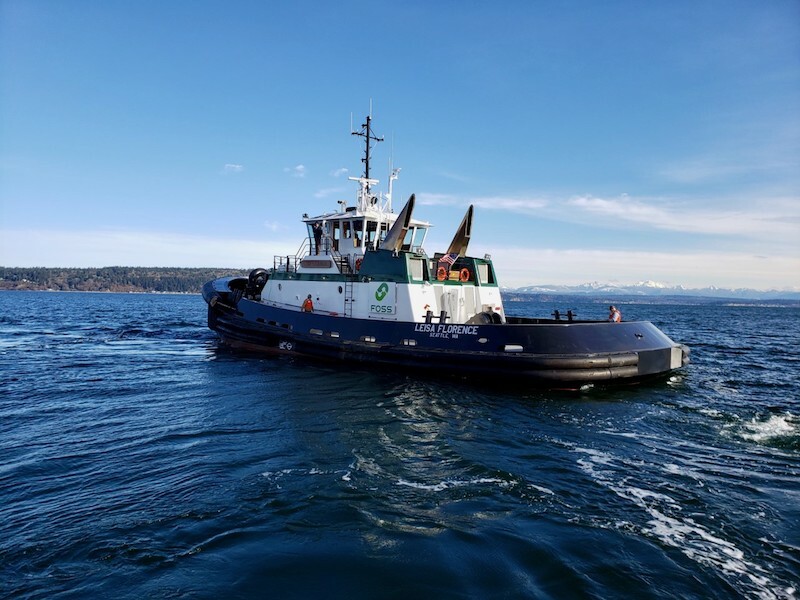Seattle-based Foss Maritime has selected Sea Machines Robotics’ SM300 autonomous-command and -control system for use aboard its new tug Rachael Allen, the fourth of several new ASD-90 tugs under construction at Nichols Brothers Boat Builders, Freeland, Wash.
Scheduled for a May 2021 delivery, the 6,866-hp, 90-ton bollard pull Rachael Allen will be the first U.S.-flag harbor tug to integrate autonomous systems in real-world commercial operations, the companies said. The project also marks the first installation of a Sea Machines autonomous system on a vessel over 5,000 hp, the Boston-based company said. After completion, the tug will operate in California, where it will provide tanker escort and ship assist services to Foss customers.
The Rachael Allen is powered by two MTU Tier 4 engines, producing 6,866 hp. Towing equipment includes a Markey DEPGF-52R winch with 750' of 10" synthetic line on the bow and a Markey DEPC-32 stern winch with 250' of 6.5" circumference line on the stern.
Autonomous technologies streamline manual, repetitive and tedious tasks, allowing personnel to focus on higher-level operations with reduced risk, Sea Robotics said. Specific SM300 capabilities include transit autonomy, as well as remote access of the tugboat’s on-board machinery. This feature allows personnel to manage and support operations from anywhere on the vessel or from shore. Navigation obstacle detection and avoidance capabilities come standard with the SM300, further reducing risk for crew during at-sea operations.
The Rachael Allen will be delivered with the SM300 system and supporting hardware fully integrated into the vessel, but the capability of the technology will be activated over six to nine months to ensure full visibility and acceptance from all operational stakeholders.
Along with Sea Machines’ remote command and control capabilities, Foss will use existing personnel to monitor the tug’s systems and operations via streaming video and sensor data. By having an extra set of eyes and hands with access to vessel command and control, the Sea Machines system allows Foss and the crew of the Rachael Allen to maximize productive time, safety and crew welfare.
“Foss is leveraging Sea Machines’ cutting-edge technology to take on the routine work and allow crew to focus on higher-level tasks and improve safety, while also increasing productivity and efficiency during harbor operations,” said Will Roberts, Foss Maritime's president and CEO. “Foss prides itself on always offering customers safe and innovative solutions, and this is one more way that we are delivering on that promise.”
“We are pleased that Foss is leveraging Sea Machines’ proven autonomy systems on their newest boat for routine harbor operations," said Sea Machines’ Michael G. Johnson, founder and CEO. "And while our space has seen a number of government-innovation backed prototype initiatives for autonomous tugs in Europe, Japan and Singapore, it’s notable that Foss is launching the first commercially funded project in U.S. waters. Our technology has been in use aboard commercial vessels around the world for nearly three years and is backed up by thousands of hours of testing and validation.”
In 2020, Sea Machines and Foss teamed up in support of Sea Machines’ multiyear agreement with the U.S. Department of Defense. During an October demonstration in Tacoma, Wash., Sea Machines and Foss outfitted a remotely commanded deck barge to land helicopters and host a scaled fueling station for aircraft, surface vessels and shore replenishment. Using the SM300, shoreside operators had remote situational awareness and were able to demonstrate the capabilities of remote command and control of the vessel, her operating systems and flight deck in a live marine environment.




